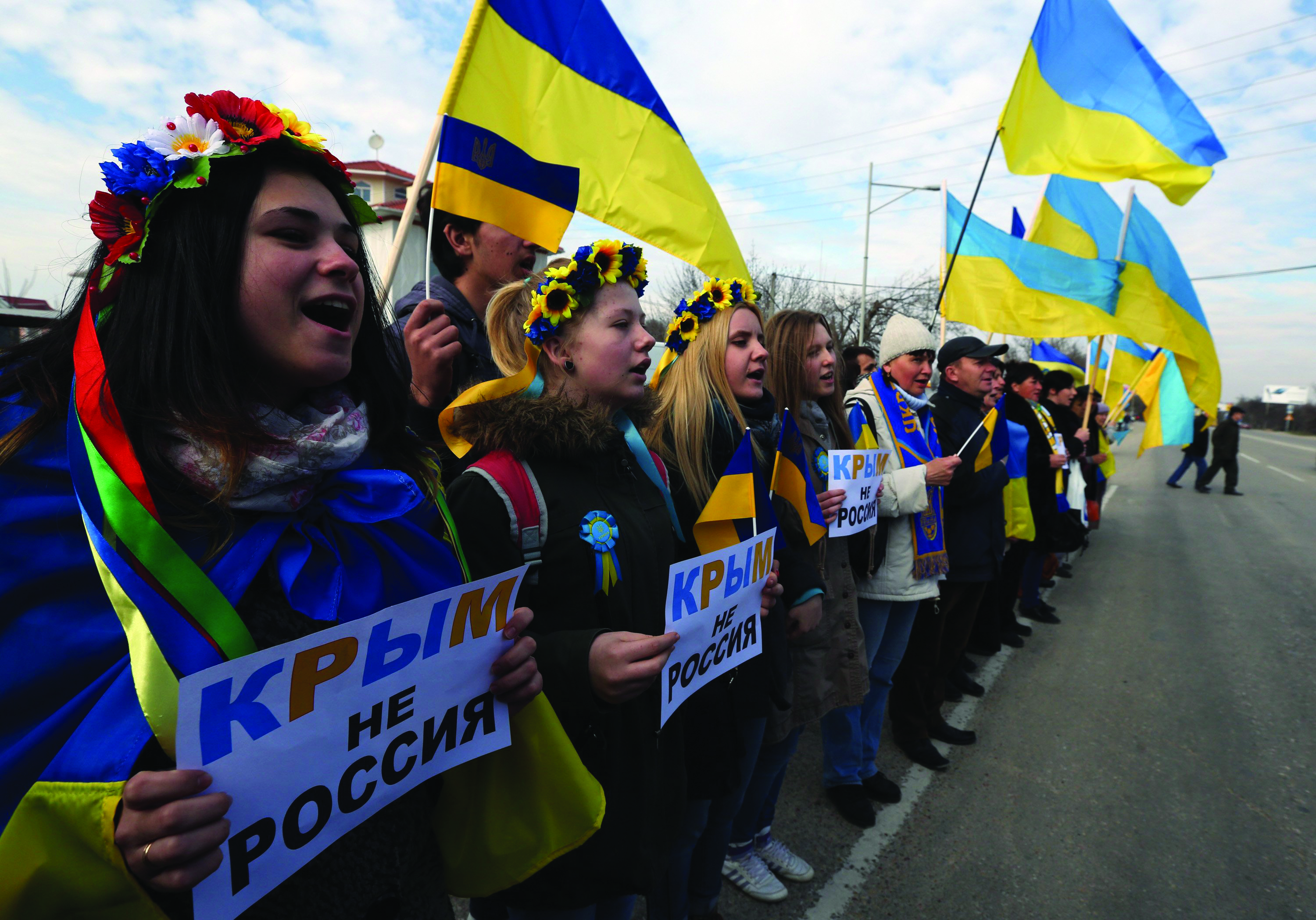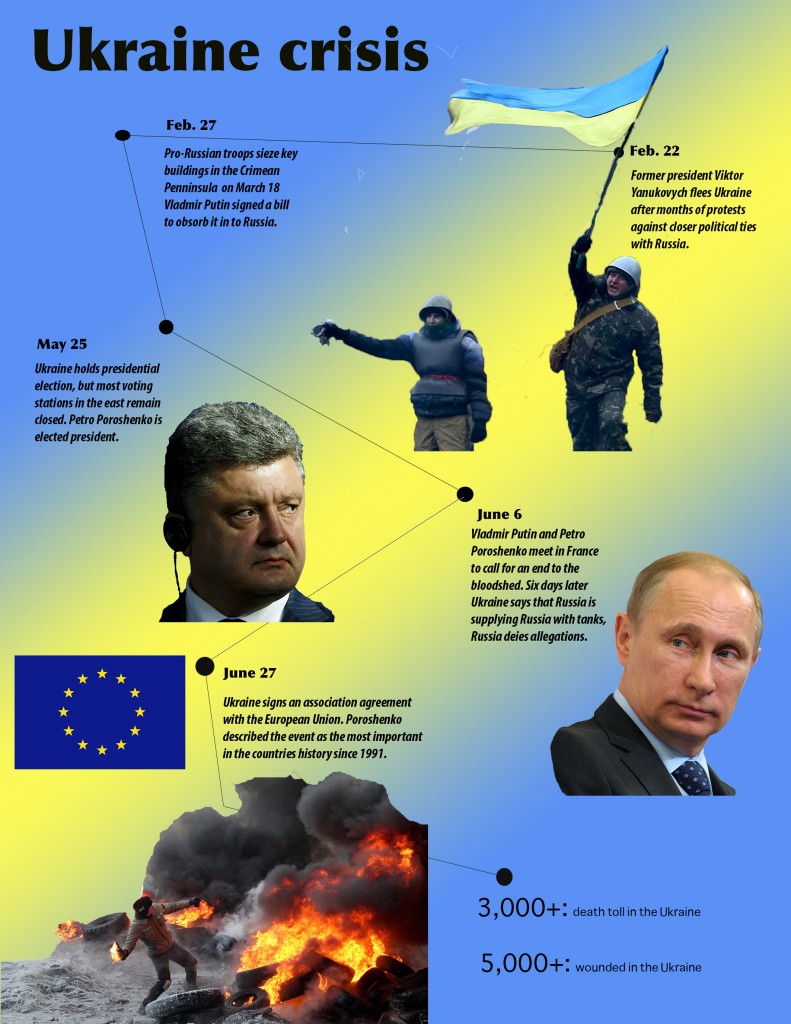Ukraine conflict hits home
Half-way across the world a political struggle rages on in Ukraine, but its effects extend to Utah State University’s campus.
For Anna Doloman, a PhD student studying Biological Engineering at USU whose whole family still lives in Ukraine, the conflict is a constant distraction.
“It’s like having your thoughts, like 60 percent of your thoughts, be in your hometown, not here where you’re supposed to think about studying and your research,” she said. “It’s every day worry and every day thoughts about them to support them somehow, but I cannot do anything, I can just wait and hope that something good is going to happen.”
Doloman is from Ukraine and came to the U.S. for school, her family remains for the time being outside of the direct conflict, but that is little comfort for her.
“It’s like having some kind of nightmares when you go to bed because you don’t know what can happen tomorrow because nothing is predictable with Russia,” she said.
On February 22 former Ukrainian President Viktor Yanukovych fled Ukraine after months of protests against closer political ties to Russia. Five days later Russian troops were occupying the Crimean Peninsula. Since then there has been a flurry of fighting between pro-Russian rebels and Ukrainian forces in eastern Ukraine in which over 3,000 people have died.
Trevor Mills, president of the Russian club at USU, served an LDS mission in Ukraine and mainly in the Crimean Peninsula.
“When I was there I had a lot of people just straight up tell me ‘this is Russia,’” Mills said. “I never wanted to argue with anybody because it was kind of like, well, you can say whatever you want, but a lot of people are very pro-Russian, everyone there speaks Russian, I didn’t hear Ukrainian ever when I was there.”
On March 18 Russian President Vladmir Putin signed a bill to absorb the Crimean Peninsula into Russia. That was after citizens in Crimea voted to secede from Ukraine by an overwhelming majority. While Mills thinks the majority in the Crimean Peninsula probably would have been in support, not the 93 percent majority in favor though.
“I don’t know if I believe that it was 93 percent or so that said that they should succeed, but I do think that more than 50 percent of people would have,” Mills said. “Given a fair chance, I don’t know if it was fair or not how they voted, I do think that they would have succeeded.”
Doloman feels like there is an information block in Russia causing unreasonable support for Russia’s involvement in Ukraine.
“I believe that the reason that it all happened is because there was mis-interpretation of what’s happening actually happening in Ukraine due to the bias mass-media in Russia,” Doloman said. “That’s why many people, whom I don’t know, but still I know that there are those people who think that Ukraine is under really crazy political government. So they don’t know all of the truth about what is actually happening and they are believing the mass media in Russia.”
Mills also feels that he is missing some points in the coverage of the conflict.
“When I read the news I like to try and read both in English and Russian because I have that opportunity. It’s hard to say when I’m reading the news I feel like i’m not getting all of the story,” he said.
The initial protests against Yanukovych and his government in Ukraine arose because of his favor of closer political and financial ties to Russia rather than the European Union. On June 27 Ukraine signed an association agreement with the European Union.
“I would like to see Ukraine a sovereign and independent country without influence of our eastern neighbor and completely integrated with the European Union because that’s the future, we are moving to the Euro we are moving to what’s higher standards,” Doloman said.
For Doloman the importance of recognizing informational bias is extremely important, especially in Russia.
“I would like to say that everything starts from a single person. From the persons understanding and the mindful understanding of the information which they are given,” Doloman said. “If there wouldn’t have been such an informational bias in Russia there wouldn’t have been such a support from the people and this wouldn’t have happened.”


